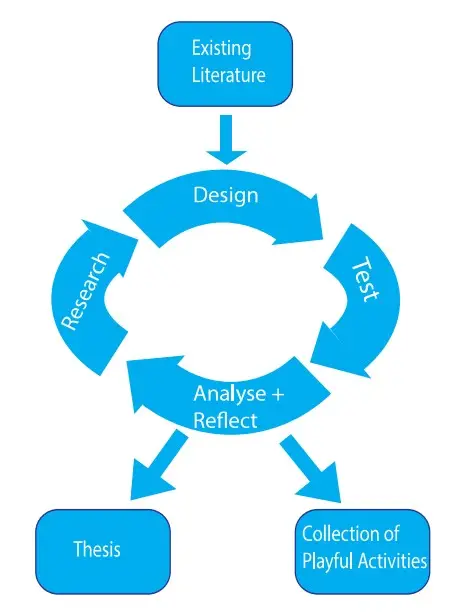About the Project
Overview
How can play help to capture the impact of co-creative interventions on community wellbeing, mental health and social cohesion? As non-clinical, participatory arts-based projects featuring play and performance continue to grow in popularity in the UK as a form of community intervention, this project seeks to better understand the potential impact of such activities, and to help community practitioners capture and evaluate this impact.
Existing literature across the humanities and social sciences suggests that participating in playful co-creation can have significant potential impact on the subjective wellbeing of individuals and communities, for example by providing relief from external problems, boosting mood, reducing isolation, raising confidence and providing opportunities to develop skills and experience achievement. Similarly, it can support participants in personal mental health recovery, by giving them a chance to connect with others, give and receive peer support, build new identities and feel empowered. Finally, play and performance can improve social cohesion by uniting participants in a shared, transformative experience of flow, called co-liberation.
Such experiences, however, are emergent (meaning simply that they are unpredictable) and ephemeral (meaning simply that the art generated lies within the very process of making, existing as an experience rather than an object), and this makes them difficult to document! This is a major problem for any third sector organisations or community groups running projects featuring play and performance, because oftentimes such groups need to report the impact of their activities to funding bodies, partners and other relevant stakeholders. Currently, facilitators of such community groups face barriers to impact evaluation such as a lack of time, resources or appropriate training. Participants of these community groups may find feedback-gathering activities inaccessible, or else unappealing. Through practice-based research, I am currently investigating how play might help to bridge this gap, making the data-gathering process more engaging for participants and more efficient for facilitators!
About Me
I am a PhD candidate undertaking practice-based research at Abertay University. I seek to investigate the potential impact of playful co-creation on communities, and design new ways for play to facilitate in the capture and evaluation of this impact. My aim with this research is to design a collection of games and playful activities which community practitioners can use to help make impact evaluation more efficient, engaging and enjoyable for all.
About the Site
This website serves to document my ongoing research and practice. Visitors will be able to access the latest iterations of my designs and share feedback on their use. As this research is both experiential in nature and ongoing, the website shall update as my research progresses and my portfolio expands. Keep checking back here for new designs, iterations, versions and extensions!
Supervisors
I have four supervisors overseeing this project:
Dr Lynn Love
Principal Supervisor
Senior Lecturer at Abertay University
Faculty of Design, Informatics and Business
Dr Mona Bozdog
Lecturer at Abertay University
Faculty of Design, Informatics and Business
Dr Mhairi Thurston
Reader in Counselling and Psychotherapy at Abertay University
Faculty of Social and Applied Sciences
Department of Health, Sport and Wellbeing
Prof. Stefano De Paoli
Professor of Digital Society at Abertay University
Faculty of Social and Applied Sciences
Department of Sociological and Psychological Sciences
Research Questions
My key research question is: How can play and performance impact the wellbeing, mental health and social cohesion of communities, and how do we best evaluate that impact?
This can be broken down into four sub-questions:
How can play motivate co-creation within community groups?
What might the impact of participating in play-driven co-creation be for the wellbeing, mental health and social cohesion of individuals and communities?
How can we capture and evaluate this impact?
How can we use this research to develop and disseminate a methodology for future interventions?
Methods
This is a practice-based research project, and as such follows an iterative cycle of sense-making and knowledge building through experience. Essentially, I use the existing literature as a guide to plan designs of playful methods of collecting and evaluating impact. I then playtest prototypes of these designs with volunteer players, and collect feedback from them about their experiences. To keep my processes transparent, I also keep a journal of my own reflections. The results of these playtests then direct further research, and the findings of this research inform the next phase of my designs, beginning the cycle anew in an upwards spiral of inquiry and creation. The final output of this experiential cycle will be my PhD thesis, and a collection of games and playful activities which can be used by community groups for data gathering in order to evaluate impact. This website shall serve as a means of recruitment, offering community practitioners the opportunity to test my designs in real-life scenarios and report their experiences back to me; and also, eventually, as a means of dissemination, giving visitors digital access to the full collection of games and activities to be used, modified and expanded upon according to their own unique contexts and needs.

This research is generously funded via RLincs-2 by Abertay University.